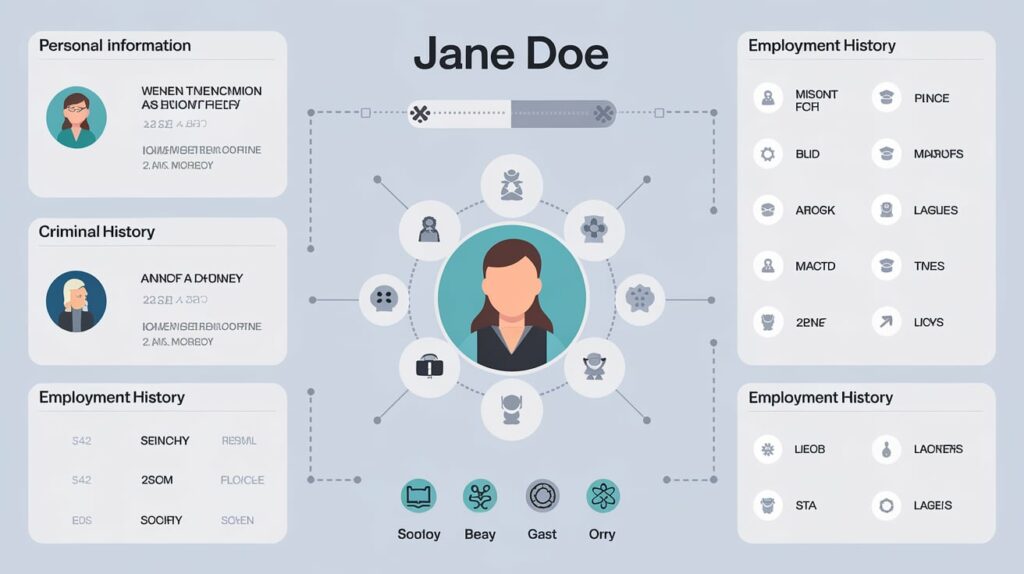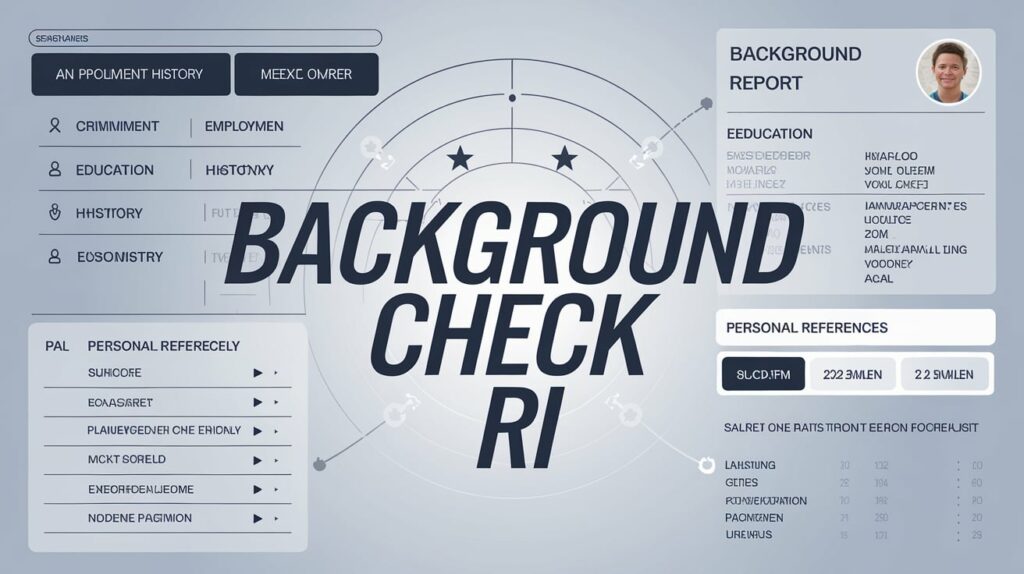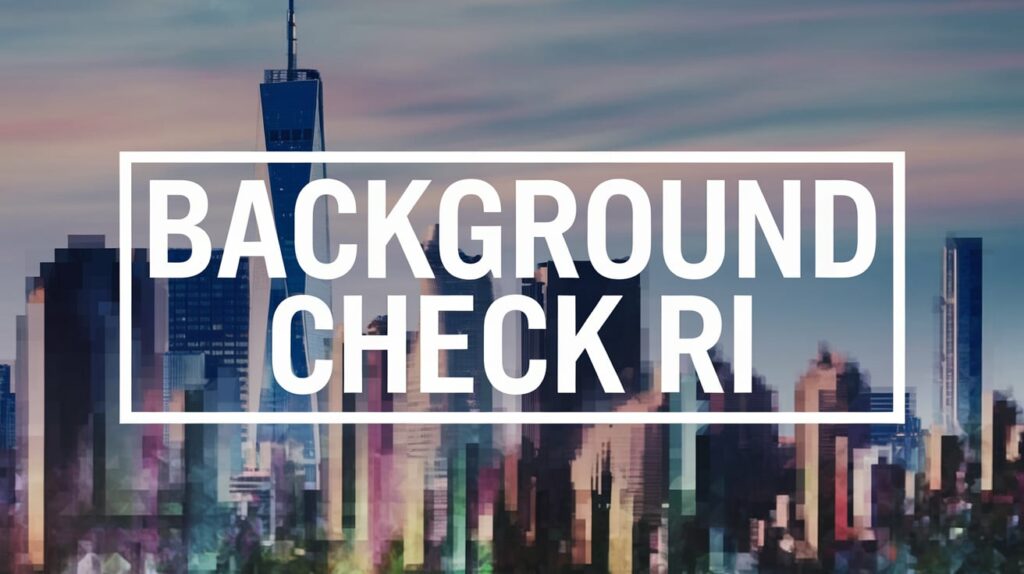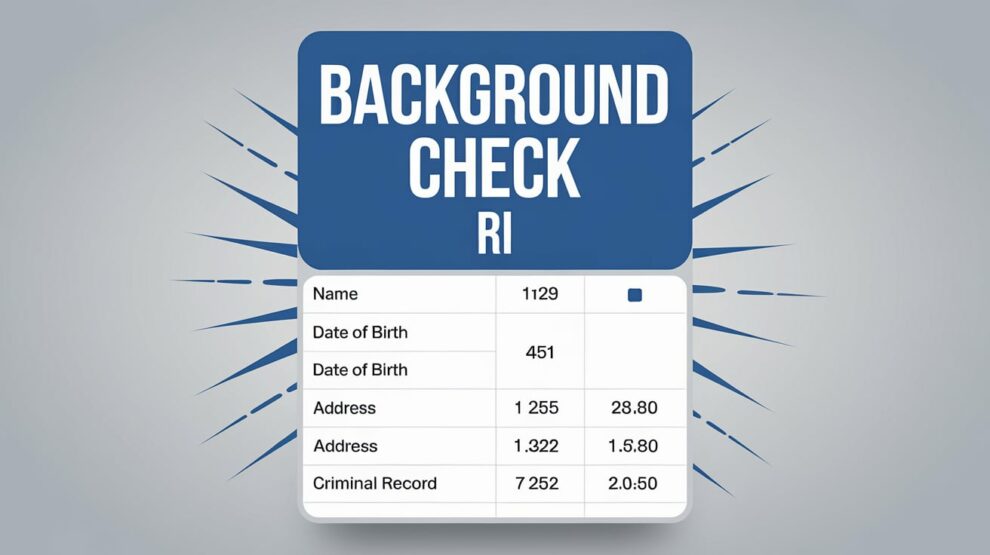Everything You Need to Know About Background Check RI in 2025: Laws, Process, and What to Expect This Year
Table of Contents
In 2025, background checks in Rhode Island (RI) are more essential—and more regulated—than ever. Whether you’re a job seeker preparing for employment or an employer looking to vet candidates responsibly, understanding how background checks in RI work is critical. With enhanced technology, evolving laws, and growing privacy concerns, Rhode Island continues to refine how background screening is conducted across various sectors.
This article will walk you through what a background check in Rhode Island involves in 2025, how the process works, relevant laws, and best practices for both employers and applicants.
What Is a Background Check in Rhode Island?
A background check in Rhode Island is an investigative process used to verify an individual’s identity, character, and past behavior. These checks are typically used by:
- Employers, to assess job candidates
- Landlords, to screen potential tenants
- Licensing boards, to confirm qualifications for professional credentials
These checks help determine whether someone poses a risk or meets the qualifications required for a specific role or responsibility. In Rhode Island, this process often includes reviewing criminal history, employment and education history, driving records, and sometimes credit reports or drug test results, depending on the situation.
What Does a Background Check RI Include in 2025?

Background checks in Rhode Island are more advanced and tailored in 2025. Most include the following components:
1. Rhode Island BCI (Bureau of Criminal Identification) Report
This is a state-level criminal record check provided by the RI Attorney General’s office. It shows:
- Arrests
- Convictions
- Court dispositions within Rhode Island
2. National Criminal Database Search
Covers multiple states to uncover criminal records not reported in the RI BCI. It includes:
- Felonies and misdemeanors
- Arrest warrants
- Court records
3. Sex Offender Registry Search
Searches national and state databases for listings of individuals convicted of sex-related crimes.
4. Employment Verification
Confirms:
- Where the candidate worked
- Their job title
- Dates of employment
- Reason for leaving
This helps detect false claims on résumés.
5. Education Verification
Checks the authenticity of degrees and educational institutions listed by a candidate, particularly for positions requiring formal credentials.
6. Credit Report
Often used for roles involving financial responsibility, this report reveals:
- Debt levels
- Payment history
- Bankruptcies or liens
(Employers must comply with the FCRA and obtain written permission.)
7. Motor Vehicle Record (MVR)
For roles that require driving, this check provides:
- Driving history
- License validity
- Traffic violations or DUIs
8. Drug Testing
Many employers in Rhode Island conduct pre-employment or random drug tests to ensure a drug-free workplace. Tests screen for substances like marijuana, opioids, amphetamines, and cocaine.
9. Professional License Verification
Confirms that the candidate holds valid certifications or licenses required by law (e.g., nurses, electricians, accountants).
How to Get a Background Check in RI

There are two common ways to request a background check in Rhode Island:
1. Through the RI Attorney General’s Office
The Bureau of Criminal Identification (BCI) provides official state criminal history checks.
- In-Person: Visit the RI Attorney General’s Office at 4 Howard Ave, Cranston, RI.
- Online: Submit a request through the Rhode Island BCI portal.
- Fee: Typically $5 for personal checks, higher for employer or licensing purposes.
- Required: Government-issued photo ID (e.g., driver’s license, passport).
2. Through a Background Screening Company
Employers often hire third-party consumer reporting agencies (CRAs) that provide:
- Broader (multi-state and federal) checks
- FCRA-compliant reports
- Applicant tracking integrations
These services are especially valuable for national companies or industries with strict compliance standards.
Rhode Island Background Check Laws in 2025
Ban the Box Law
Rhode Island law prohibits most employers from asking about criminal history on initial job applications. The goal is to provide fair hiring opportunities by delaying the background check until after a conditional job offer is made.
FCRA Compliance
The Fair Credit Reporting Act (FCRA) is a federal law that governs how background checks are conducted. Employers must:
- Get written consent before conducting the check
- Provide a copy of the report and a Summary of Rights if they plan to take adverse action (e.g., not hire someone)
- Give the applicant time to dispute errors
Expunged Records
In Rhode Island, individuals can petition to expunge or seal certain criminal records. These records:
- Do not appear on official BCI reports
- Cannot legally be considered in hiring decisions
Why Employers Rely on Background Checks in RI
Employers in Rhode Island use background checks to:
Promote Workplace Safety
By identifying red flags (like violent criminal history), employers can avoid hiring potentially dangerous individuals.
Verify Applicant Information
Fraudulent resumes are common. Verifying education and employment history ensures that candidates are being truthful.
Prevent Liability and Negligent Hiring Claims
If a business hires someone with a violent or fraudulent past and that person harms others, the business could be sued. Background checks help reduce this legal risk.
Comply With Industry Regulations
Industries like healthcare, finance, and childcare are legally required to perform background checks on staff. Failure to do so can result in penalties, license loss, or lawsuits.
In 2025, modern systems automate much of this process, making it faster, more reliable, and integrated into digital hiring platforms.
Tips for Job Seekers in Rhode Island

Check Your BCI Report in Advance
Before applying for jobs, visit the RI Attorney General’s website and request your own BCI report. This allows you to:
- Confirm accuracy
- Take action on any incorrect or outdated information
Be Honest About Past Convictions
If asked, don’t lie about your record. Employers are often more forgiving of past mistakes than of dishonesty.
Know Your Rights
Under the FCRA and state law:
- You must be informed if a background check is conducted
- You have the right to dispute incorrect findings
- Employers must provide written notice before taking adverse action
Correct Inaccuracies
If your report includes mistakes—such as someone else’s record or an outdated offense—submit a formal dispute to the background check provider and follow up until resolved.
Be Ready to Explain Minor Offenses
If asked about an old conviction, be honest and show personal growth. Explain the context, what you learned, and how you’ve moved forward.
FAQs About Background Checks in RI in 2025
Q1: How long does a background check take in Rhode Island?
Most checks return within 1–5 business days. National checks may take up to a week.
Q2: Can I be denied a job for having a criminal record?
Yes, but the employer must consider the nature of the offense, how long ago it occurred, and its relevance to the job. Blanket bans are discouraged.
Q3: What if my report has an error?
You have the right to dispute errors. Contact the agency that provided the report and request corrections under FCRA.
Q4: Do expunged records show up?
No. Expunged and sealed records are not included in a standard BCI report.
Q5: Is consent required for a background check in RI?
Yes. Employers must obtain written permission before conducting any background screening.
Conclusion
As Rhode Island continues to modernize its employment and safety practices in 2025, background checks remain a vital tool for protecting workplaces, verifying identity, and ensuring public trust. Whether you’re an employer screening applicants or a job seeker preparing for the hiring process, understanding how background checks work—and your rights under federal and state law—is essential.
From BCI reports to national databases, and from FCRA compliance to Ban the Box protections, each step in the process carries legal and ethical responsibilities. Employers must apply checks fairly and transparently, while candidates should be proactive in managing and reviewing their own records.
Do Follow Dragcast on Social Media For More Such Content.












Add Comment